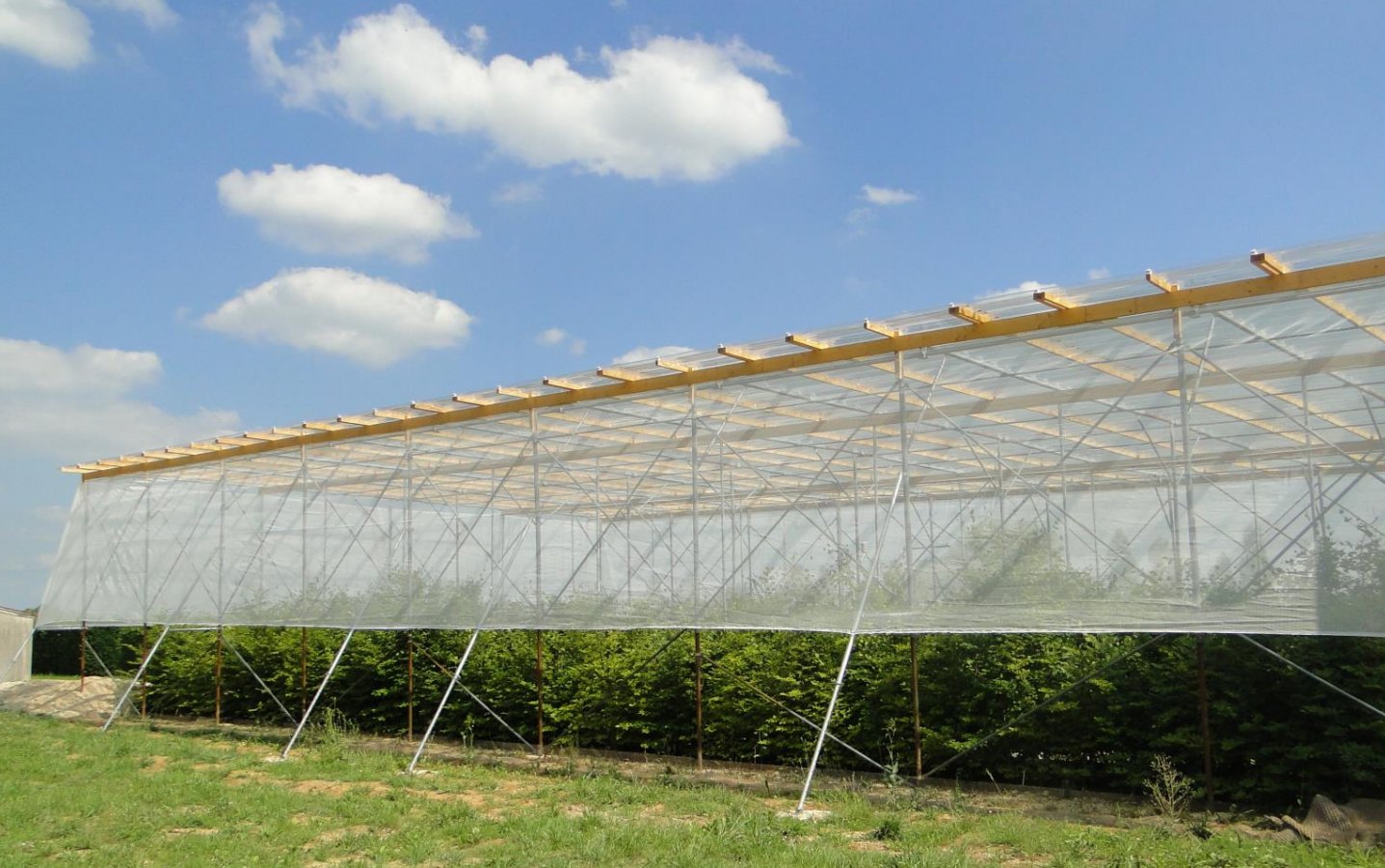A new paper entitled ‘Leafy season length is reduced by a prolonged soil water deficit but not by repeated defoliation in beech trees (Fagus sylvatica L.): comparison of response among regional populations grown in a common garden‘ has been published by Massonnet et al. (SILVA Department) has been published in Agricultural and Forest Meteorology.
Abstract. Bud-burst and leaf-senescence determine the length of the growing season for deciduous trees and therefore the duration of potential carbon assimilation with consequences on biomass production. In Fagus sylvatica L., leaf phenology depends on both photoperiod and temperature. The future climate is expected to induce more frequent soil water deficits and biotic attacks (possibly resulting in severe defoliation).
The aim of the present study is to assess whether these constrains may alter leaf phenology. In a common garden, we sowed seeds collected from six beech forests along a small latitudinal gradient (140 km) in North-Eastern France. In 2014, after seven years growth, a rain exclusion was installed above the trees to test how recurrent soil water deficits impacted bud-burst (BB) and leaf-yellowing (LY) over three years. We also analyzed the response of leaf phenology to annual defoliation, aiming at affecting carbon and nitrogen availability in trees.
Delayed BB and early LY were observed, reducing the growing season (GS) until 14 days in response to soil water deficit whereas no influence of defoliation was detected. These time lags were not in relation with leaf nitrogen content. In the control treatment, BB occurred earlier and LY later in the northernmost populations than in the southernmost without clear relationships with local climate. A significant treatment x population interaction was observed revealing a plasticity in the leaf phenology response to soil water deficit among populations.
These results suggest that beech trees present a genetic differentiation of leaf phenology even within a small latitudinal gradient but that these differentiations could be disrupted by soil water deficit that is predicted to increase in the future.
This research was funded by the LabEx ARBRE within the framework of the Mepib-Death project. Pierre-Antoine Chuste received a PhD grant from ARBRE.




